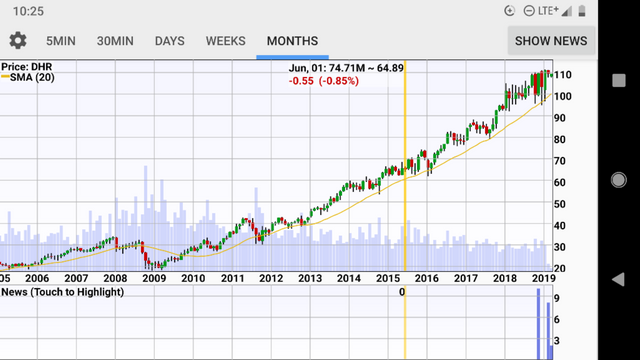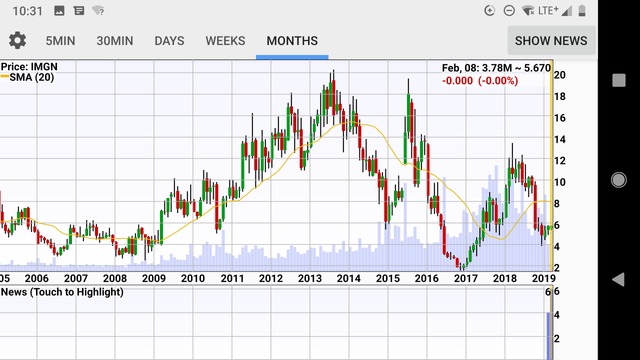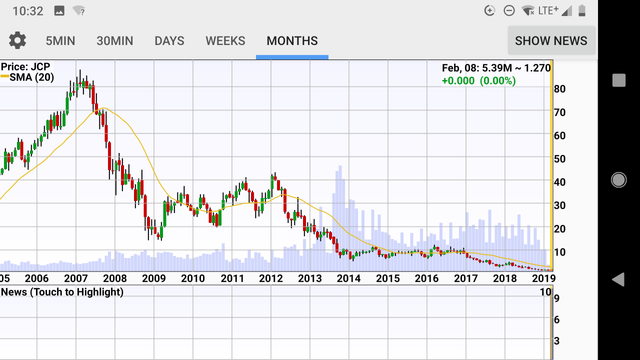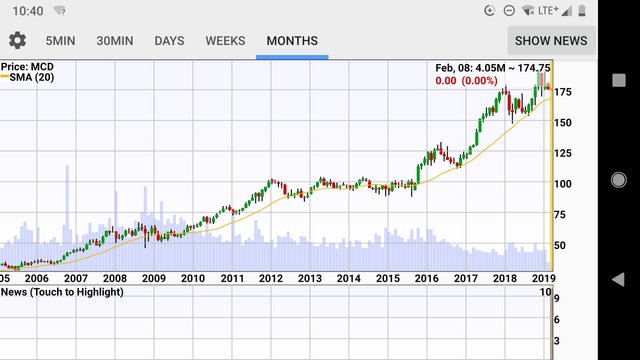The Quest to Invest can be a Muddled Mess

(All images courtesy of giphy.com)
Hello fellow Steemians, the new guy here to talk a bit about my personal investing foibles and successes. As the old caveat goes, this is not investing advice, I'm certainly no professional so seek one or do your own thorough research before risking your dollars....and of course don't risk more than you can afford to lose. I'd just like to highlight some of the things I've found that work for me and flag some of the ones that have worked against me.
Before I dive in though, I'd like to congratulate and give kudos to 👍👏all you Steemians out there who are able to post regular value added content whilst managing work and family obligations, amongst whatever else life throws your way. I've been trying to find time to post alongside fulfilling these responsibilities for a couple weeks now and have been wholly unsuccessful.
The first thing I will state for clarity is that I will be speaking specifically to stock market investing and use the words "stocks" and "shares" interchangeably. Although I am interested and involved in the world of cryptocurrency, that is a story for another day. So with that, let's dig in.
When I discovered some "play" money (old unregistered mutual funds I'd almost forgotten about, no fortune I assure you though) to play with, I decided to take a look at doing some direct investing in the stock market. I had zero formal experience in this arena aside from putting money in an RRSP ( registered retirement savings plan in Canada, 401 K in the US I think is the equivalent?). I felt somewhat confident, however, in my ability to determine risks associated and make wise purchasing decisions. What I didn't realize was I needed a personal or web broker (READ middleman), and/or a verified account with a minimum initial deposit. And every trade I wanted to make came with fees which can be very prohibitive depending on the volume of shares you are looking to buy. The lowest fees I've encountered are $4.95 per trade CDN and that is only on a small number of shares, from 1 to at most around 10. So your sell price needed to recoup your initial investment can end up being significantly above the actual share price at the time of purchase when factoring in at least another $9.90 to buy then sell at a later date.
.gif)
So I set up one of these accounts. I went with Questrade based on recommendations of people I knew who had used that platform and after briefly using the trial version to get my feet wet. There are several others worth looking at including:
TD Ameritrade (https://www.tdameritrade.com/home.page)
E-Trade (https://us.etrade.com/home)
Ally Financial (https://www.ally.com)
At the same time I was looking up every piece of free investment advice I could find and subscribing to all the free email services promising winning trade tips and strategies. Money Morning profit alerts, Ray Blanco, Ian Wyatt, VectorVest, The Motley Fool, Technology Profits Daily...and on and on. This is where I started to get into trouble. Why? Mostly because there isn't much reliable advice coming for free, and when it is it's often to bait you into paying for more information, newsletter subscriptions etc., which may or may not contain sound advice. Cue the "can't wait" offers and endless videos and teasers that rarely if ever get to the point in a timely fashion without some sort of buy in. And now I've got 15 to 50 of these types of emails coming in everyday with the next big winner that's going to guarantee I retire rich beyond my wildest dreams. It's not all without merit but sifting through and finding the useful versus the downright misleading can be a daunting task.
After following some of this "great" investment advice I came away with some valuable lessons learned and a better understanding of how to pick stocks with long term potential and avoid the riskier picks. One observation I made through some questionable buys based on this free info was that I suspect alot of free advice comes from sources who have a position in these stocks that they are looking to sell. They pump the stock with positive news looking to get the unsuspecting to buy in enough to move the price to a level where they can sell and recoup their losses. Especially in the penny stocks sector where a $0.25 stock will get pumped up seemingly based on this false hype to say $0.35 only to fall in the coming weeks to $0.1-0.15 and show no signs of recovery. If you bought thousands of shares at the original price and were fortunate enough to sell when it topped out you maybe made a few bucks over the fees it cost you to buy and sell in the first place. More likely you're now stuck with a dud that will never return to it's past glory and you've flushed another $50 or $100 down the drain....hope you never bought the paid subscription!!
Here's an example of a few of the not-so-hot picks I made based on the experts wisdom. Check out Maxar Technologies (MAXR, my single biggest loser) Appliance Recycling Centers (ARCI) and Altagas (ALA). Meanwhile, doing my own research I found Exelixis (EXEL) which has so far treated me good along with BCE Inc.
.gif)
The "get rich quick" scenario just doesn't seem to be feasible working off of the direction given by these gurus. The simple answer is that outside of game changing technology, business models or emerging markets spotted early on, the slow and steady approach based on proven winners is the only stable path. The legalization of cannabis in Canada created a great wealth building opportunity for the early adopters, but for the most part after legalization occurred and the speculation was gone everyone "sold the news" and prices fell significantly below what those late to the party paid. Some buying opportunities were created, but the real short term moneymaking potential dried up unless you were blessed with the flexibility to invest a very hefty amount upfront. Similarly with Amazon, Apple and Google, early on there was a lot to be gained on a working man's budget, now, no so much. (This is what I really enjoy about cryptocurrency btw, the opportunity for it to gain astronomically still exists).
There are, however, some fantastic resources out there that are free and can make investing like this feel a bit less like throwing money into the breeze.
When I was trying to decipher what some of the "teaser" stock picks that were being advertised when you sign up for a paid subscription I stumbled upon
Travis Johnson, Stock Gumshoe
https://www.stockgumshoe.com/author/admin/
This gentleman does a fantastic job of uncovering stock picks by the experts that are trying to get you to buy into newsletter subscriptions etc. These can cost anywhere from $50 to thousands a year to get access to the experts picks and Travis and his "Thinkolator" do the heavy lifting for you just for signing up for free email alerts. He does of course have a "pay to play" for his "irregulars" as he calls them, but you get alot of helpful info and analysis for free. And the amusing and ironic part is he seems to get ad revenue from some of the very sources who's secret stock picks he's uncovering for his subscribers.
Another tool I've found very helpful for finding worthwhile long term investments is to use a decent stock ticker app and run different stocks through a multi-year analysis looking for consistent growth trends while avoiding the continuous peak and valley trends and the steady declining trends. Sounds simple, it is, and it works. For instance, I would use an app like Stockspy
and look for trends like this:

While avoiding ones that look like these 2:


The final thing that I personally think is a great idea is to expand on this analysis and look for recession resistant stocks, for instance ones that went through the 2008 recession with little to no downturn while almost every other stock was pulling back significantly. These are likely companies providing products that are consumed regardless of the current economic climate. An example might be McDonald's

There are several others out there worth exploring and having in your back pocket for the inevitable downturn into a bear market.
In conclusion, I'll just point out that good dividend payers can help grow your investment even when the share price is slightly stagnant. Also Real Estate Investment Trusts (REITS) can be very attractive if they have a solid real estate portfolio (ie. high occupancy rates in buildings, long term lease agreements, desirable location etc.) and decent dividends.
It's likely I've not covered all the pitfalls or highlighted all the best strategies when it comes to personal stock market investing so if you see something missing please mention it in the comments section. My hope is that by posting this maybe someone reads it and avoids the mistakes I fell into and gets off to a smoother start with their own foray into the stock market.
And if you made it all the way through this post consider yourself AWESOME!!!
.gif)
✅ Enjoy the vote! For more amazing content, please follow @themadcurator for a chance to receive more free votes!
Congratulations @steemedman! You received a personal award!
You can view your badges on your Steem Board and compare to others on the Steem Ranking
Vote for @Steemitboard as a witness to get one more award and increased upvotes!